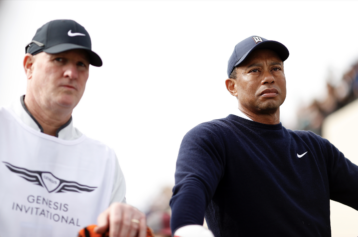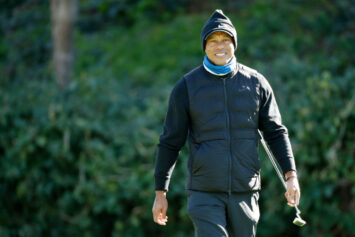Golf was always considered a white mans sport, and although it has diversified over the years, it may not be as progressive as it claims to be.
From John Shippen to Tiger Woods and Babe Didrikson-Zaharias to Michelle Wie, discussions surrounding race and diversity have broken down many barriers, turning what was once a sport for the elite to one thats inclusive for all.
And although USGA, golfers and tours have made progressive changes to become more inclusive, a recent incident shed light on golf culture and the continuous discussion surrounding diversity.
Recently, five black women reportedly were victims of racial and gender discrimination while playing golf on a Pennsylvania golf course. The clubs co-owner felt that the group was playing too slow and ended up calling the police on them.
In light of what happened, Im curious to know what its like in golf culture and if it is even as progressive as some claim. So, I thought it was important to hear from a professional about their experiences and the state of golf and race relations.
Professional golfer Shasta Averyhardt spoke to The Shadow League about her experiences and what the environment is really like.
TSL: As a professional golfer of color, how has your experience been like in the golf world?
Shasta: Overall, my experience has been good in the golf world so far. I get the constant looks and curiosity that follow when I step onto the golf course, which is what I expect playing a Caucasian-dominated sport. Im not entirely sure how other golfers of colors experiences are, unfortunately.
TSL: Have you ever dealt with racial or gender discrimination in golf clubs or club establishments?
Shasta: Thankfully, I havent, but from time-to-time, I experience the over-helpful ranger or head pro that feels the need to explain all of the rules and where everything is to me. But, once they see my swing, they realize I know what Im doing. Ive received a couple of apologies. The stigma that women golfers, let alone women of color, are slow players need to be re-evaluated.
TSL: How would you describe the golf culture environment now?
Shasta: Overall, I feel we have a lot more growing to do. Golf has always been for the elite and in this day of age, almost everyone has access, which is scary for a lot of closed-minded individuals that fear change. The question we need to ask is why? The uncomfortable conversations are necessary for progression.
TSL: Recently, several black women reportedly dealt with discrimination on a Pennsylvania golf course. With situations like this, how can golf as a culture move past this?
Shasta: For years, women and people of color have been fighting for equality and the only way I personally see it moving forward is acknowledgment and opening up the minds of people that cant see past the exterior layers and generalization.
TSL: Are discussions about diversity, discrimination and inclusion happening within the golf community?
Shasta: Yes, the discussions are happening but the action is too slow. Some of the conversations are happening because of obligation to not appear discriminatory, which is the incorrect mindset. Now, its about seeing where the implementation is being applied.



